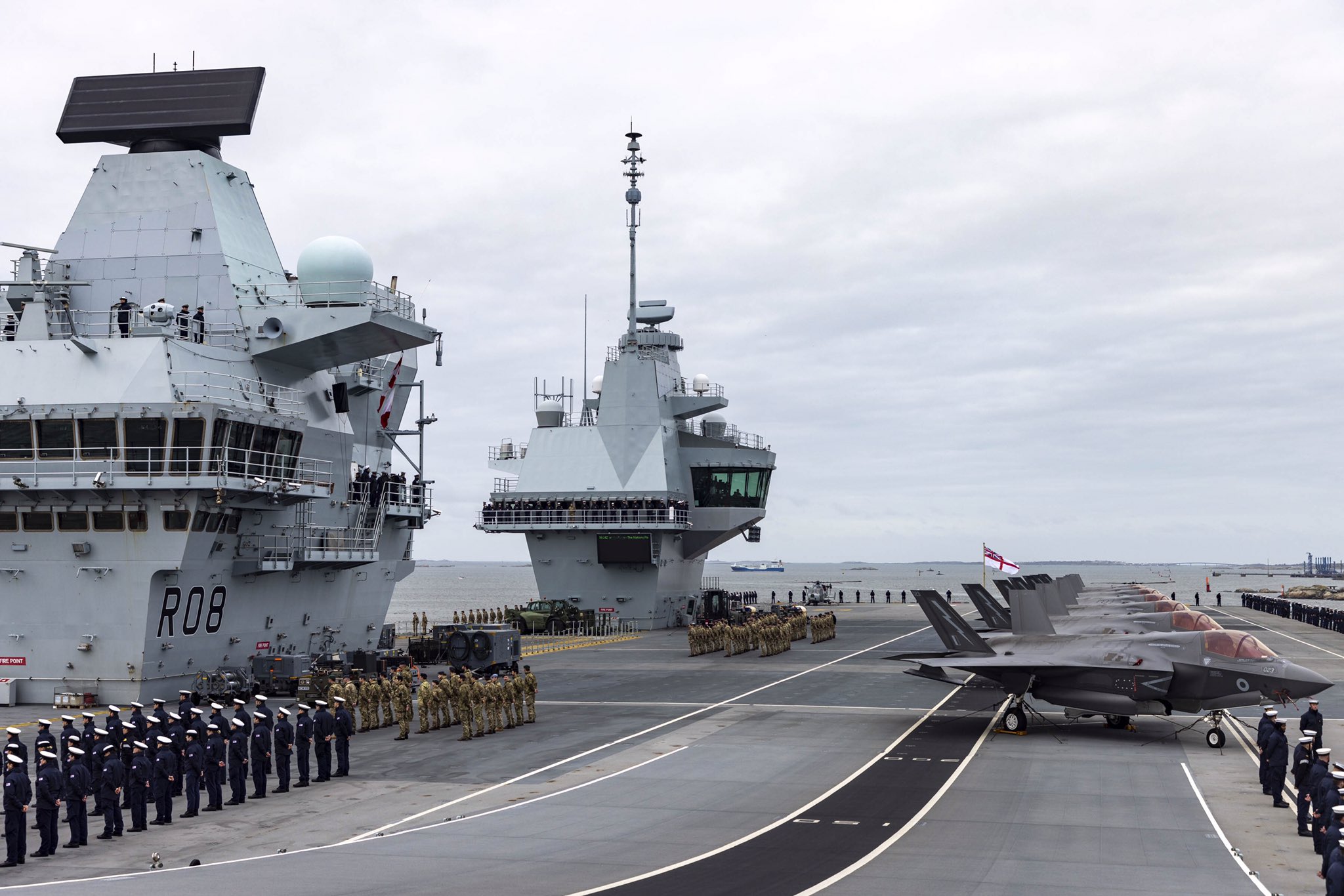The British Royal Navy has reportedly decided to discontinue a longstanding tradition of employing Chinese staff aboard warships due to concerns over espionage.
UK warships have long enlisted the assistance of Chinese laundrymen, predominantly from Hong Kong, who have been responsible for the laundering and pressing sailors’ uniforms and officers’ white tablecloths since the 1930s.
However, in a notable development, the Royal Navy has opted to replace these Chinese laundry workers with Nepalese Gurkhas, as reported by The Sun.
This change has been prompted by apprehensions that Beijing might attempt to leverage the presence of Chinese workers to extract sensitive Navy information.
The report from British media said that the decision to end the practice became evident when three Chinese nationals were refused access to HMS Queen Elizabeth, the Royal Navy’s largest and most powerful vessel.

This occurred while the ship was on deployment in the disputed South China Sea as part of a carrier strike group mission.
In a separate incident, a fourth Chinese laundryman, who had served for 39 years, was relieved of his duties this month. The decision was made due to his family’s residence in Hong Kong.
Former First Sea Lord Admiral Lord West, quoted in the report, expressed that regarding security matters, the Navy has little choice but to take such actions.
However, he also acknowledged the sentiment attached to this change, noting that Chinese laundrymen have stood alongside British forces in wars, and some have made the ultimate sacrifice to defend the nation.
Currently, at least four Chinese nationals are still employed by the Royal Navy. According to the report, these individuals successfully passed security vetting because their families had relocated to Britain, a measure aimed at shielding them from potential Chinese pressures.
A Royal Navy spokesperson emphasized the importance of security by stating that they ensure all civilian contractors, including these Chinese workers, possess the necessary and appropriate security clearances to maintain the integrity of operations.
Concerns Regarding Chinese Espionage Efforts
This development comes amid concerns regarding China’s persistent espionage activities, with reports suggesting their continuous efforts to steal military secrets and sensitive information.
Chinese spies reportedly focus on British officials in critical positions within politics, defense, and the business sector. This marks a concerning trend in an increasingly sophisticated spying operation to access classified information and sensitive secrets.
In a recent revelation, MI5 spy chief Ken McCallum disclosed that Beijing has significantly intensified its efforts to acquire classified information on British nuclear submarines.
He stressed that the Beijing government has prioritized disrupting the AUKUS (Australia, the UK, and the United States) submarine project as a “high priority.”
The AUKUS alliance extends its focus beyond submarines, encompassing plans for developing advanced weaponry. The project is expected to explore cutting-edge technologies such as quantum computing.
McCallum’s accusations underline the urgency of safeguarding intellectual property in fields like quantum computing and synthetic biology, where China is reportedly making strenuous efforts to obtain sensitive information.
The MI5 spy chief also claimed that Chinese spies have discreetly approached over 20,000 individuals in the UK online. This alarming number underscores the scale and reach of China’s espionage efforts within the country.
In March, a parliamentary researcher was arrested on suspicion of spying for China. Despite denying any involvement in espionage, the arrest of the young researcher has triggered calls from British members of parliament for a firmer and more resolute approach to addressing security threats of this nature.
The UK, in September, even announced that former British armed forces personnel training Chinese pilots would be held legally accountable and could face potential prosecution for sharing military tactics with a foreign nation.
This action was prompted by revelations in October 2022, which brought to light that several ex-RAF, Royal Navy, and Army pilots had been training the Chinese People’s Liberation Army Air Force.
These pilots, drawn by salaries averaging £250,000, had entered into agreements via a South African company.
This disclosure raised serious concerns that these former British pilots might have inadvertently contributed to the Chinese military’s understanding of Western tactics. Such knowledge transfer could potentially pose risks to the aircraft of the UK and its allies.
The reported move to remove Chinese personnel from British warships represents another measure taken to counter China’s espionage efforts.
- Contact the author at ashishmichel(at)gmail.com
- Follow EurAsian Times on Google News